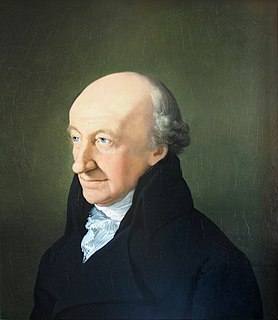A Quote by Robert Kuttner
Henry Ford, in a sense, was the first Keynesian. He paid his assembly workers high wages so they could afford to buy his cars.
Related Quotes
This relationship is the foundation for the argument, made by some trade unionists and labour advocates, that high wages can actually be "good for business". The precedent set by Henry Ford in 1914, who offered workers $5.00 per day (a very high wage at the time) so they could afford to buy the same cars they made, is often invoked.
Historical fact: People stopped being people in 1913. That was the year Henry Ford put his cars on rollers and made his workers adopt the speed of the assembly line. At first, workers rebelled. They quit in droves, unable to accustom their bodies to the new pace of the age. Since then, however, the adaptation has been passed down: we've all inherited it to some degree, so that we plug right into joy-sticks and remotes, to repetitive motions of a hundred kinds.
One of the most intensely unlikeable figures of the twentieth century, fanatical anti-Semite, enemy of labour unions and proud recipient of medals from Nazi Germany, where Hitler held him in veneration, Henry Ford was also an employer who paid his workers more than his competitors, an innovator who pioneered the assembly line and a visionary whose part in the creation of the twentieth century was so great that Aldous Huxley, in his Brave New World, prefigured a society whose calendar was divided into BF and AF-Before Ford and After Ford.
This kind of inequality - a level that we haven’t seen since the Great Depression - hurts us all. When middle-class families can no longer afford to buy the goods and services that businesses are selling...it drags down the entire economy from top to bottom. America was built on the idea of broad-based prosperity... That’s why a CEO like Henry Ford made it his mission to pay his workers enough so that they could buy the cars he made. It’s also why a recent study showed that countries with less inequality tend to have stronger and steadier economic growth over the long run.
Sharp increases in the minimum wage rate are also inflationary. Frequently workers paid more than the minimum gauge their wages relative to it. This is especially true of those workers who are paid by the hour. An increase in the minimum therefore increases their demands for higher wages in order to maintain their place in the structure of wages. And when the increase is as sharp as it is in H.R. 7935, the result is sure to be a fresh surge of inflation.
Henry Ford made a lot of money making cars at one time, but that was a small advantage to him compared to the benefit to millions of people who for the first time in their lives were emancipated from common public carriers and could live where they wanted, move at the hours they wanted, to the places they wanted. Ford collected a billion bucks, but that was peanuts compared to the benefits.
If a market exists for low-paid work, then we should think about how we can make this type of work more attractive by providing government assistance. Of course, the wage-earner must be able to live off of his wages. We will not allow poverty wages or dumping wages. But the wage earner can receive a combined wage that includes both his actual wages and a government subsidy.
To the extent that our workers compete with low-paid Mexicans, it is as much through undocumented immigration as trade. This pattern threatens low-paid, low-skill U.S. workers. The combination of domestic reforms and NAFTA-related growth in Mexico will keep more Mexicans at home. It is likely that a reduction in immigration will increase the real wages of low-skilled urban and rural workers in the United States.
When Henry Ford decided to produce his famous V-8 motor, he chose to build an engine with the entire eight cylinders cast in one block, and instructed his engineers to produce a design for the engine. The design was placed on paper, but the engineers agreed, to a man, that it was simply impossible to cast an eight-cylinder engine-block in one piece. Ford replied,''Produce it anyway.

































